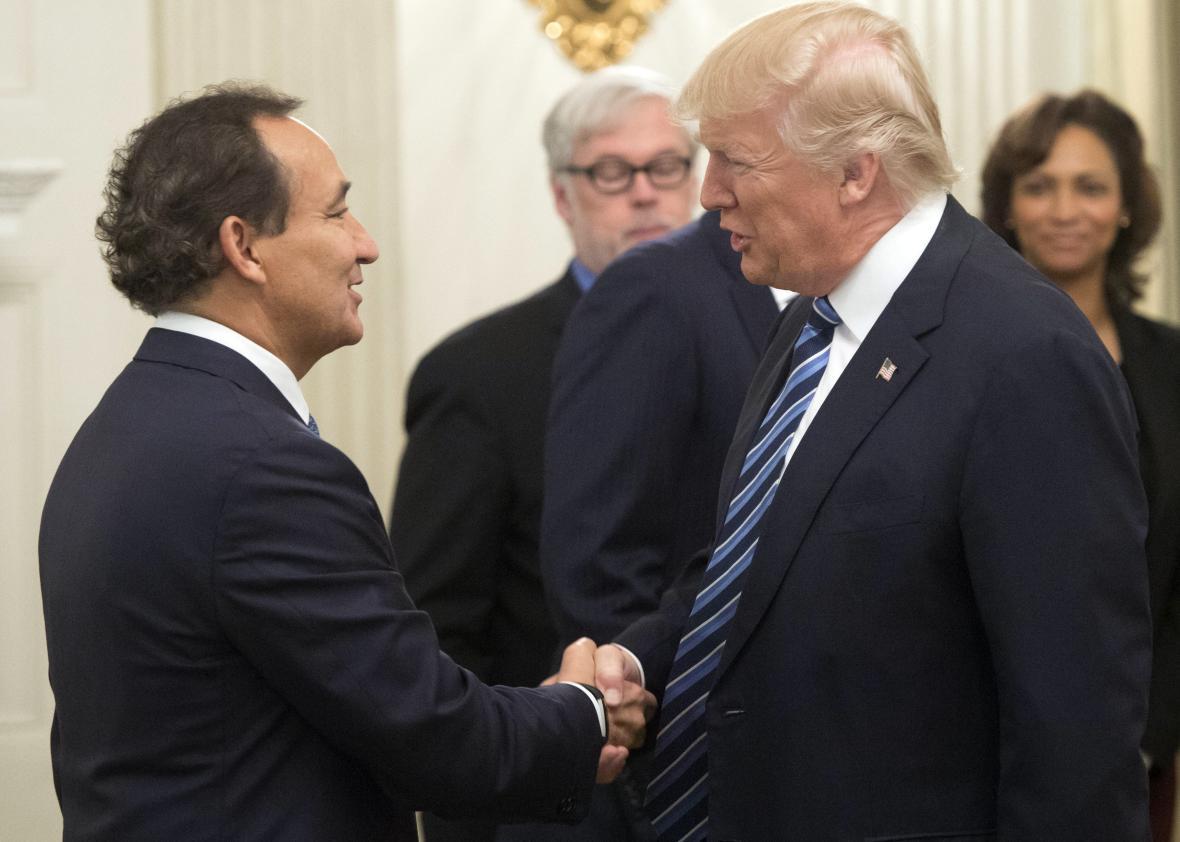When the internet hurled its collective outrage at United Airlines on Monday following the release of a video showing a passenger being violently dragged off of an oversold flight, airline executives furrowed their brows and said ¯\_(ツ)_/¯.
United CEO Oscar Munoz was blasted for initially offering a vague and unsatisfying apology on Monday. (He seemed more contrite in a second apology, which was posted Tuesday.) On CNBC, former Continental CEO Gordon Bethune articulated the industry’s perspective more clearly: “It was an oversale, obviously, and someone had to be removed from the flight. [The passenger’s] immature reaction, obviously, it disturbs us all.”
How is it that airlines see a disruptive passenger where the rest of the world sees brutality? As a former flight attendant, I offer the following thoughts toward a general theory of air cabin conflict.
Airplanes are governed as autocracies—for what are largely good reasons. In an emergency, there’s no time to answer questions, to gather more information, or to negotiate with a passenger who wants to get his bag from an overhead bin before evacuating. So a variety of regulations outlaw insubordination. That’s why passengers are told that “federal regulations require passengers to comply with crew instructions,” and it’s also why the law allows the carriers broad discretion to refuse transportation to a passenger who “is, or might be, inimical to safety.”
But flying on an airline is also a commercial transaction, which sets up an expectations problem. The airlines’ marketing and announcements emphasize their commitment to service and comfort. Consumers see no reason for an airline to act differently from, say, a restaurant. It doesn’t help that flying is miserable, with planes fuller than ever.
It’s only when conflict does arise that the truth becomes obvious (occasionally in dramatic fashion): that cabins are ultimately optimized for law and order, not customer satisfaction. In my pre-flight briefings, the pilots I worked with routinely reassured me, bro to bro, that they had my back. “If anyone gives you trouble,” they told me, “let me know, and we will make sure they are removed from the plane.” The law doesn’t prescribe an exact standard of diligence that pilots must meet before rejecting a passenger, and the courts have tended to excuse the airlines from liability even when the basis for the pilot’s decision is later proven incorrect. If I told a pilot that a passenger was misbehaving, I am sure he or she would have taken my word for it.
You might be thinking: But United oversold the flight! To the airline, this was an overbooking problem that turned into a safety problem, and its staffers were just following the rules. And indeed, the government does allow airlines to oversell flights. (The industry has reduced the frequency of “involuntary denied boardings” in recent years, a trend that’s consistent with United’s numbers, company representative Charlie Hobart told me.) As Munoz wrote in a letter to employees, United “followed established procedures.” They sought out volunteers, then offered compensation.
I asked Hobart why United didn’t continue to raise its compensation offer until they found a buyer: “We do an amount that we feel is reasonable and fair. Once it gets beyond that, we have to take the next step.”
That step taken, the airline’s instinctual need to maintain total control of the cabin trumped its commitment to customer service—or, indeed, human decency. In Munoz’s telling on Monday: “One of the passengers we politely asked to deplane refused and it became necessary to contact [security].” On an airplane, any refusal to cooperate is treated as a safety problem—and any safety problem requires an immediate and unrestrained response.
United’s original mistake came when airline staff let the passengers board and then tried to deal with the overbooking problem. Typically, Hobart told me, United does try to avoid boarding in such situations, though he characterized this as a standard procedure, “not a policy.” In the terminal, the airline wouldn’t have enjoyed the same degree of autocratic license, and it wouldn’t have been necessary to physically remove the passenger from the plane.
Munoz’s Tuesday statement said, “It’s never too late to do the right thing.” But by the time the plane had boarded, it was too late—precisely because when an airline battles passengers on the aircraft, the airline always wins. In the short term, anyway.
